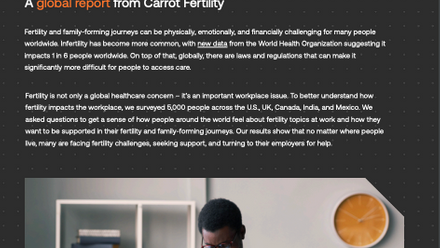How global mobility risk management helps prevent the failure of international assignments
These types of incidents are unpredictable and, despite our best preparation, they sometimes can’t be prevented. This doesn’t mean we stop conducting business globally though, and it certainly doesn’t mean we stop working abroad.

As organisations start or continue their expansion abroad, employers enter new legislative and ethical environments where moral and legal duty of care obligations towards employees may differ from the laws in their home country. However, the moral and legal responsibility and liability that sits with the organisation’s management, requires them to address the wide variety of medical and security risks that can impact their mobile workforce and business continuity in multiple environments.
Expatriate benefit packages include essential international private medical insurance (IPMI) to ensure expatriates can access medical treatment locally when illness or injury occurs, and be evacuated abroad or repatriated home in case of aggravation.
However, providing such insurance cover is not enough, as coverage offers only reactive services, where an incident must occur in order to trigger the policy benefits. With the potential high costs related to expatriate assignments failures, organisations look to ensure return on investment with complementary risk management procedures and tools.
The value of having a mobility risk management programme in place goes far beyond IPMI by ensuring skilled expatriate populations are fit and prepared to work abroad with knowledge, tools and resources adapted to their destination country, health status, and family situation. Investing in duty of care should not be considered as an overhead cost but as an enabler of business opening and continuity abroad.
1) Assess
International organisations looking to improve their efforts in protecting their employee populations assigned abroad have access to a number of solutions.
The first step is to conduct a gap analysis between the organisation’s existing procedures and industry best practices. Following this assessment, recommendations can be made to design a centrally-managed global mobility risk management program for the entire expatriate workforce.
For high risk industries and locations, organisations can build location-specific emergency response plans or conduct complete health risk assessments to ensure mechanisms are in place to ensure efficient and cost-effective response in the event of medical and security-related incidents. These plans can be scaled-up to crisis management plans to prepare for the worst.
When mobilising employees abroad, sometimes in remote and potentially challenging work locations or to regions posing endemic health risk, international organisations need to have relevant, consistent and protective occupational health processes in place.
Recognising workforce health as a key organisational asset is an important step in ensuring duty of care obligations are met to prevent ill health or injury. An occupational health service integrated into the organisation’s operation can yield important benefits such as:
- improving productivity by reducing lost-time illness or injury by identifying at-risk individuals (chronic diseases, dental problems, etc.).
- reducing costs by avoiding unnecessary evacuations or repatriations and by reducing IPMI premiums as occupational health is often viewed by insurers as a way to adequately demonstrate protection of employee health.
2) Advise
One has to only look at news headlines as proof that assignments abroad can be filled with risks: consider the recent back-to-back deadly earthquakes in Nepal; the rise in international terrorist actions and violence; the Ebola outbreak; and continued political protests and uprisings across the Middle East.
With all these risks, implementing a mobility risk management solution that keeps expatriates and their employers updated and informed of changing conditions and facilitates communication in high-risk locations can be truly invaluable.
Besides these more extreme examples of mobility risks, there are many other events that can disrupt expatriates’ lives and thwart business plans such as location-specific endemic infectious diseases, car accidents, theft, or loss of personal or company-owned property.
A mobility risk management program offers expatriate populations with appropriate medical and security pre-deployment training and continuous intelligence in the destination country.
3) Accompany
During their assignment, expatriates expect to receive the same level healthcare as that provided in their home country. To satisfy the need for cashless access to international standards of medical care delivered in comfortable surroundings, international organisations can rely on third party providers, experts in the building and management of local healthcare provider networks to manage routine and emergency care as well as specialist medical services.
International assignees located in high risk or remote locations often require adequate protection with on-the-ground medical and security capabilities. In the event of injury or illness, on-site medical care with medical staff or via telemedicine solutions are a must to ensure prompt diagnosis, treatment and recovery. Some environments may require continuous on-the-ground security close protection and tracking protocols and technology.
4) Assist
Whether they are struck with illness, have sustained injury, are in the midst of political upheaval or close to an infectious disease outbreak or terrorist attack, expatriates need access to a unique 24/7 helpline in their own language to receive prompt and adapted response or recovery of incurred costs.
Today, organisations are mostly concerned with keeping their mobile workforce safe, especially in unknown and complex environments, usually in developing or underdeveloped countries.
With increasingly frequent threats in developed countries, closer to organisations’ headquarters, current efforts in protecting mobile workforces may extend to protecting all their employees, regardless of location and employment status.
International organisations can rely on experienced and globally capable mobility risk management and assistance partners to promote their projects’ success by identifying their at-risk workforce and project locations, advising them on how to mitigate medial and security risks, accompanying them to ensure project continuity, and assisting them in the event of an incident.
This article was provided by the global corporate solutions department of Europ Assistance, part of the Generali Group.
In partnership with Generali Employee Benefits Network
Generali Employee Benefits' solutions are to protect and enhance the wellbeing of their workforce.







